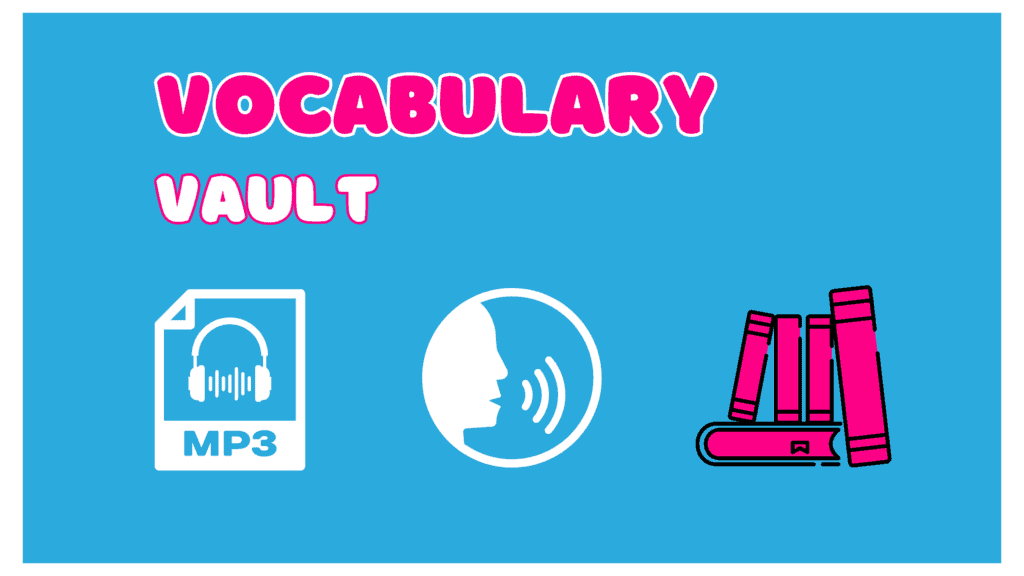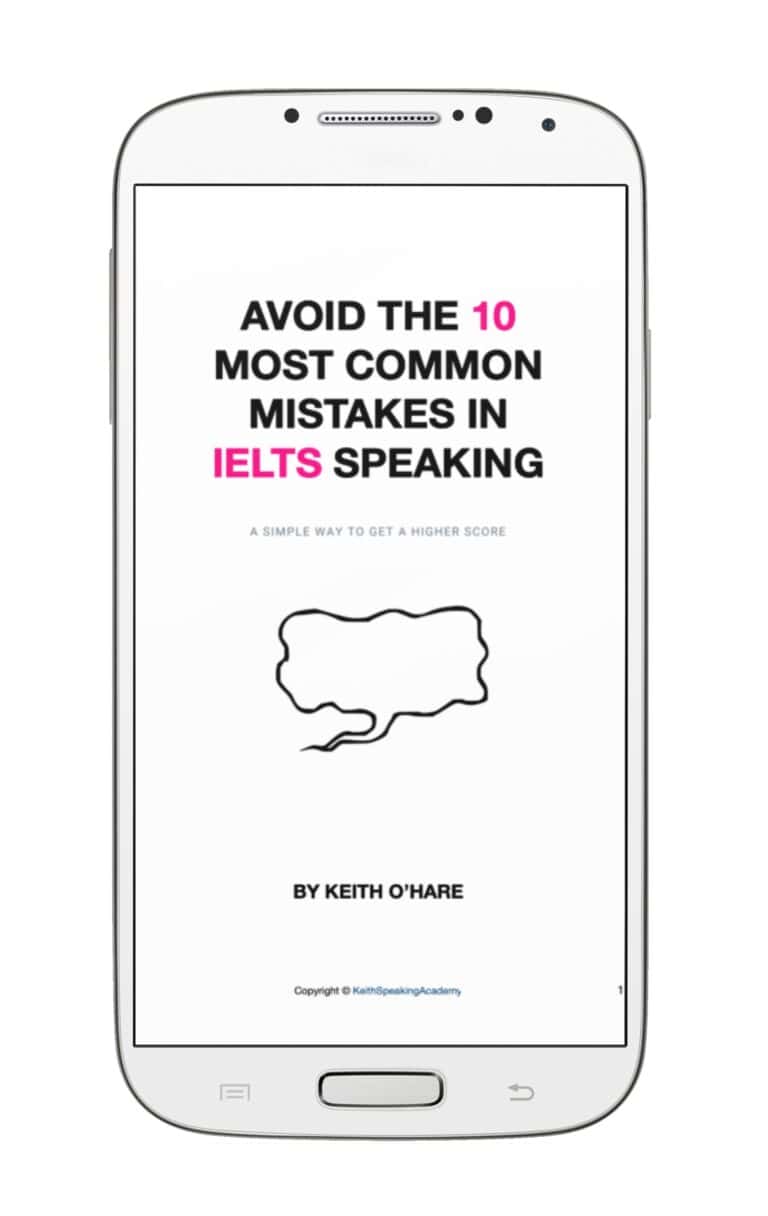IELTS Speaking Lesson about Meetings - Part 1
👇 Take this lesson with you! 👇
In IELTS Speaking Meetings can be a topic that appears, whether it is meetings at work, college or even with friends and family.
In this lesson we will look at the vocabulary, expressions and ideas you need to discuss this topic fluently.
Table of Contents
IELTS Speaking vocabulary: Meetings
Here is some useful vocabulary for this topic.
- To meet
- To have a meeting (formal)
- To attend a meeting (formal)
- To hold / call / schedule a meeting (formal and you organise)
If we are going to meet friends and family which would be a more informal context, then we can say,
To meet up (informal – with friends)
To get together (informal – with friends/family)
To have a get together = family and friends gathering for a dinner / a party
Formal meetings need a plan and notes. So we can use these expressions:
- To set an agenda
- To follow the items on the agenda
- To stick to the agenda = follow
- To chair a meeting = to organise the discussion
- To take the minutes = to take official notes
- To jot down some notes – take informal notes
- To give / voice an opinion
- To put back to a later date = to postpone a meeting
Different kinds of meetings
If a meeting is only for colleagues within the same company, we call it,
An internal / in-company meeting
When you meet colleagues or customers for the first time, we can say,
- First meeting
- Introductory meeting
- Initial meeting
- Get-to-know-you meeting
Other types of meeting might include the following:
- Status updates = give an update on your work activity
- Recurring meetings = happens on a regular basis
- A follow up meeting (e.g. with potential customers)
- Team-building meetings
- A virtual meeting = an online meeting = a Zoom meeting
- A face-to-face meeting
When specifying the activity of a meeting, we can say
- Problem-solving meetings
- Brainstorms
- Decision-making meetings
- Information sharing meetings

Adjectives to describe meetings
When a meeting is good and with a positive outcome, we can say,
- Successful
- Valuable = very useful
- Fruitful = beneficial (with a good outcome/result)
- Productive
- Constructive
When a meeting doesn’t go well and doesn’t have a good outcome, we can say,
- Difficult = hard work and no clear result (maybe due to personality clashes, disagreements)
- Stormy = very difficult
- Fruitless = no result
- Inconclusive = no conclusion
- Pointless = without meaning
What makes a successful meeting?
Here are some ideas on what can make a meeting a successful one:
- Listening carefully
- Being participative
- Working as a team
- Having a well organised and enthusiastic chair (person)
- Having a clear and shared agenda
- Having a clear purpose / goal / outcome
Find more guidelines and useful language about running an effective meeting here:
Idioms to talk about meetings
To begin a meeting we can say,
- Let’s get the ball rolling
- Let’s get down to business
- It’s time to roll up our sleeves
Sometimes people go off track in a meeting, but you want people to be direct, so we may say,
Don’t beat around the bush (=ramble), please get to the point
To get to the point = to say what you mean directly
When it comes to working as a team we can say,
- Put your heads together = to work together
- Work hand in hand = collaborate
- Two heads are better than one = teamwork is a good thing
- We are on the same page = we agree
- We see eye to eye = we agree
We need blue sky thinking = Original or creative thinking
To have your work cut out = to have a difficult task to do
There are many phrases to say – To begin again from the beginning
- To begin from scratch
- To go back to the drawing board
- To go back to square one
To call it a day = to finish
This is a long meeting, I think it is time to call it a day. Thanks for coming.
Pronunciation Files For Vocabulary From My Best Live Lessons
Use Words EASILY in English Conversations!
More Live Lessons for You
If you liked this lesson, leave a comment below!
There are more lessons you can follow in the links below too.
MEDICINE in IELTS Speaking. Learn the COVID Vocabulary for IELTS Speaking and talk about Alternative Medicines using idioms and vocabulary.
VIRTUAL WORLD in IELTS Speaking. Vocabulary and ideas to talk about the virtual world as well as some listening tasks.
TRANSPORT in IELTS Speaking. Learn the essential vocabulary for this topic, especially public and private transport now and in the future.



Dear sir,
Such a wonderful Teacher u are.. Ur lessons benefits me a lot. Love from India
That’s great to know, thanks Neha!
It’s
You are an amazing teacher. Thanks your help
Thank you so much!
Pretty beneficial. Thanks so much.
Thanks – I am pleased you like it.